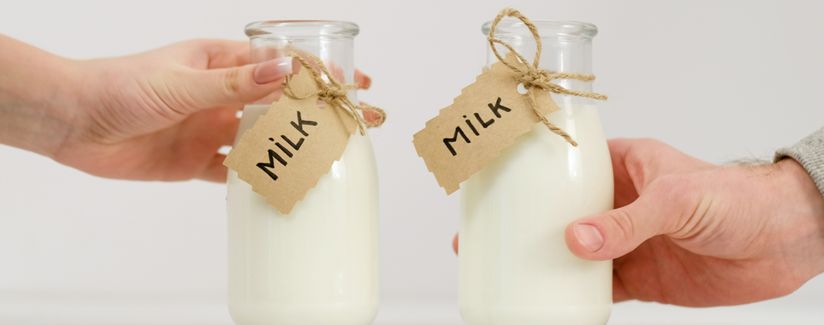
A1 versus A2 Milk: What’s the Difference?
06/13/2018
A special type of milk is gaining traction. It is called A2 milk and is promoted as easier to digest. What is A2 milk? Have the claims been proven?
In an April 2018 article, the Wall Street Journal reports, “Supporters of A2 milk contend it is the A1 protein that causes indigestion for many people, a problem that lactose-free milk won’t solve. Skeptics say there hasn’t been enough independent research to show there is any real benefit to A2 milk.”
We went to Dr. Dennis Savaiano at Purdue University and Dr. Ann Macrina at Penn State University for some insight.
What exactly is A2 milk?
Dr. Savaiano: “There are two genetic variants of beta-casein, a primary protein in milk. The older variant is A2. A newer variant in Western cattle is A1. The research data suggests that some people can be negatively affected by a poly-peptide breakdown product of A1 beta-casein, causing GI symptoms.”
Dr. Macrina: “Due to differing genetics, cows produce milk with A1 or A2 or a combination of both. A1 and A2 each have 209 amino acids and differ by only one. A1 has histidine at position 67, while A2 has proline. This makes A1 susceptible to splitting apart during digestion. One of the fragments generated is beta-casomorphin-7 (BCM-7), which appears to affect some people. We don’t know why some people are affected while others are not.”
What about claims that A2 milk is easier on the human digestive system?
Dr. Savaiano: “There is a growing body of research that the A1 variant may cause symptoms in some individuals. We do not know how many individuals or under what circumstances this may occur.”
Dr. Macrina: “Early studies showed that mice and rats fed A1 milk had more gastrointestinal inflammation than those fed A2 milk. I’m aware of only a few studies involving humans and some indicate A2 milk consumption resulted in lower levels of intestinal gurgling, gas, bloating, and abdominal pain in some people. These studies represent a good start and show promising results for A2 milk. Limitations of the current research include using a small number of subjects, results based on consumption of one serving of milk, or multiple servings over a couple of weeks. Further research is needed before making broad recommendations.”
What’s your advice to people who think they might be interested in trying A2 milk?
Dr. Savaiano: “If an individual has symptoms from milk, especially lactose-free milk and other dairy products, A2 is worth a try. There is no risk in trying A2 milk, only cost considerations.” (This news report in October 2017 said A2 milk was selling for about $9.00 per gallon compared to $5.00 for A1 milk.)
Dr. Macrina: “Milk is a nutritious food regardless of its A1 or A2 beta-casein makeup. Many people avoid milk believing they are lactose intolerant, when in fact that might not be the case. I suggest that people try it. We just can’t make broad claims, at this time.”
Dr. Savaiano is a professor in the Department of Nutrition Science at Purdue University. He is director of the North Central Nutrition Education Center and associate director of the Indiana Clinical and Translational Sciences Community Health Partnerships.
Dr. Macrina is Senior Instructor, Department of Animal Science, Penn State University College of Agricultural Sciences.



























